General description
A cell-permeable dioxotetrahydroquinoxaline compound that mimics uridine monophosphate for affinity interaction at the Argonaute-2 (Ago2) Mid domain (KD = 126 µM) and effectively inhibits Ago2 cellular miRNA loading in acute promyelocytic leukemia (APL) NB4 cultures (% inhibition by RIP = 79%/miR-107, 73%/let-7a, 73%/miR-223, 68%/miR-26a, 53%/miR-60a; 100 nM for 48 h) without affecting cellular Ago2 stability. Consistent with the involvement of Ago2 in heterochromatic miR-155HG silencing, BCI-137 is reported to decrease miR-155HG promoter region-associated Ago2 with a concomitant acetylation induction of the promoter region-associated histone H4 (70% reduced Ago2 association and 300% enhanced H4 acetylation, respectively, by ChIP; 10 µM). Likewise, Ago2 inhibition by BCI-137 is shown to boost Retinoic Acid-(RA, Cat. no. 554720) induced NB4 granulocyte differentiation as a result of greatly upregulated expression of the differentiation-related miRNAs (140% and 255% increased miR-26a and miR-223 level, respectively, compared to 100 nM RA stimulation alone for 96 h) without affecting NB4 proliferation or viability (up to 10 µM and 96 h with or without 100 nM RA stimulation).
A cell-permeable, non-toxic dioxotetrahydroquinoxaline compound that mimics uridine and directly and reversibly interacts with the microRNA (miRNA) binding domain of Argonaute-2 (Ago2; KD = 126 µM) and significantly inhibits binding of miR-20a, miR-26a, miR-107, miR-223, and let-7a to Ago2. However, it does not affect Ago2 stability in cells. Displaces Ago2 from the miR-155 host gene promoter region (70% reduction in Ago2 association) and increases histone H4 acetylation (~300%) in NB4 leukemia cell line. Promotes retinoic acid-induced differentiation of NB4 cells to granulocytes.
Please note that the molecular weight for this compound is batch-specific due to variable water content.
Biochem/physiol Actions
Cell permeable: yes
Primary Target
Argonaute-2
Reversible: yes
Packaging
Packaged under inert gas
Warning
Toxicity: Standard Handling (A)
Reconstitution
Following reconstitution, aliquot and freeze (-20°C). Stock solutions are stable for up to 6 months at -20°C.
Other Notes
Masciarelli, S., et al. 2014. ACS Chem. Biol.9, 1674.
Legal Information
CALBIOCHEM is a registered trademark of Merck KGaA, Darmstadt, Germany
Molecular Weight: 313.29. Empirical Formula: C11H11N3O6S. Assay: ≥. 97% (HPLC). Quality Level: 100. form: solid. potency: 126 . μ. M Kd. manufacturer/tradename: Calbiochem®. . storage condition: OK to freeze, protect from light. color: gray-white. solubility: DMSO: 100 . mg/mL. storage temp.: 2-8°C. SMILES string: CC(C(: O)O)NS(: O)(: O)C1: CC2: C(C: C1)NC(: O)C(: O)N2. Storage Class Code: 11 - Combustible Solids. WGK: WGK 3. Flash Point(F): Not applicable. Flash Point(C): Not applicable.- UPC:
- 51162035
- Condition:
- New
- Availability:
- 3-5 Days
- Weight:
- 1.00 Ounces
- HazmatClass:
- No
- MPN:
- 5315520001












